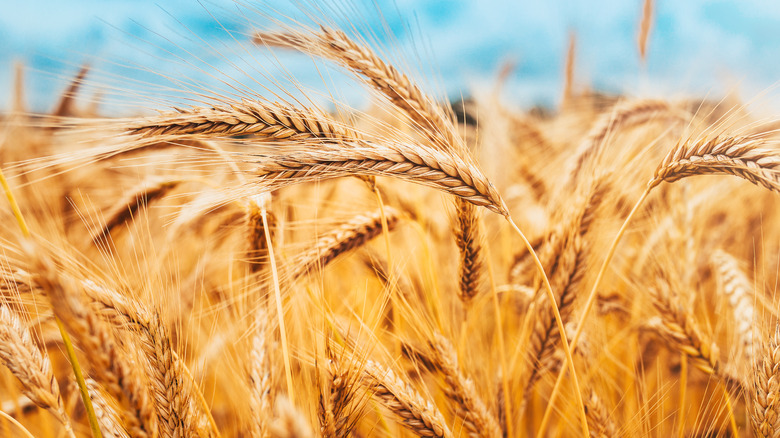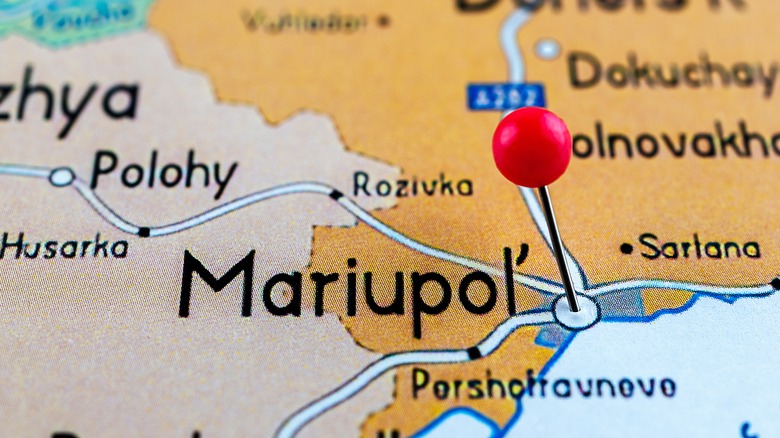The Russian Food Blockade Might Be Partially Nearing Its End
Food prices have risen dramatically since the start of the war in Ukraine (via CNBC). Back in February, the commodity price index skyrocketed with wheat jumping from 793.75 cents per bushel to 1,201.50 within two weeks (via CNN). This is because Ukraine and Russia account for about one-third of the world's wheat production, and the ensuing conflict was the first sign of trouble for the crop. Other items like corn and sunflower oils were affected as well.
The conflict has been one of the leading causes of escalating food prices, along with inflation, that has spread across the globe this year (via Reuters). Another contributing factor is that much of Ukraine's grain supply, which is grown for export, is sitting in warehouses and silos in the Southern part of the country when they would normally have been shipped across the globe. CNBC reports that more than 20 million tons of grains have been in storage there. The Black Sea port city of Mariupol has seen some of the harshest fighting during the war though with more than 20,000 civilians feared dead (via the Associated Press). The city has also been subjected to a Russian naval blockade that has prevented any grains from reaching their intended destination. It seems though that there may be some relief coming to the port soon that will allow exports to continue.
First ship in three months leaves Mariupol
Reuters reports that Russia has agreed to talks with Turkey to create a safe naval corridor that would allow for Ukrainian exports to continue once again. Russia had announced a similar corridor in the past but now seems to be coordinating with Turkey for the naval corridor to continue operations. According to Reuters, the Turkish Defense Ministry released a statement that a Turkish dry cargo vessel was the first to safely leave the Ukrainian port city of Mariupol since the war began.
Turkey, Russia, Ukraine, and the United Nations met for talks to discuss this safe naval corridor, per Reuters. Russia has hopes that this agreement will lead other countries to lift sanctions that will allow further export of grain and fertilizer from the country. While Ukraine is seeking security measures for the port that fell under Russian control in May (via the Associated Press).
Russia has denied playing a role in growing global food insecurity despite the insistence of financial experts (via Reuters). These shipments may be the much-needed relief that the globe is looking for as prices for staples like bread and pasta as well as other foods continue to rise.

